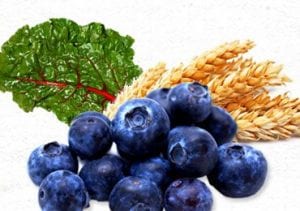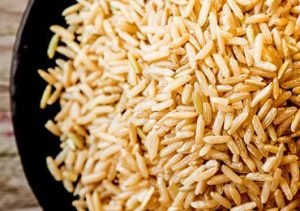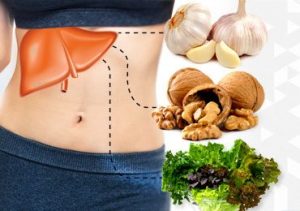Did you know coffee has proven health benefits? A cup of coffee to begin a day, a cup of coffee at any time of the day, gives us the great boost of freshness. I can’t imagine myself denying coffee if someone offered it to me. The aroma of the coffee, the taste of it makes people just love it so much! A cup of coffee has got plenty to offer us. A cup of coffee can have various health benefits, depending on how much strong your brew is. A study says that 83% of adults in the United States alone cannot imagine not drinking their favorite cup of Joe.
Besides, the infamous energy drinks, caffeinated soft drinks, and tea also go into your body, and you need not be surprised to know that 90% of us intake caffeine in some of the other forms every day. Now, is that a bad thing? Nope! Let’s see the advantages and disadvantages of coffee!

Advantages and Disadvantages of Coffee
Studies have revealed that coffee, specifically, has a lot of advantages. It helps in preventing many diseases, helps in increasing your memory and many other things. This is because those coffee beans are seeds, and just like all other seeds, even the coffee seeds are filled with protective compounds. However, coffee comes with its own share of drawbacks as well. I mean, everything comes with a disadvantage, right? Studies have indicated that it could be troublesome for people who have diabetes, high blood pressure, and osteoporosis. Also, caffeine has poor interaction with few common medications and can worsen heartburns, anxiety and even insomnia. So, I will tell you both the advantages and disadvantages of coffee. Read on!
- The good news first, I mean the advantages!
- Protection against a host of health problems
- Parkinson’s disease
Few studies have revealed that people who drink loads of coffee, not decaf, are 4 to 8 times less prone to get Parkinson’s disease, as per National Institute of Neurological Disorders. This is less likely to occur in people drinking coffee due to the caffeine being present than other nutrients in the coffee.
Advantages of Coffee
1. Good for Alzheimer’s and Dementia

Coffee also has the potential to decrease the risks of Dementia and Alzheimer’s. If people between age 40 to 50 years develop the habit of drinking 3 to 5 cups of coffee every day, not decaf, can reduce the risks of developing dementia and Alzheimer’s disease by nearly 70%. This was found by a 2009 study at Florida. Other studies also reveal that frequent consumption of caffeine might aid in slowing the rate of decline of cognition in adults who have aged.
2. Cuts Down Suicide Risks

Seems odd to listen, right? But you got to believe it! Harvard’s School of Public Health conducted a study in 2013 and the inference was surprising they found that those who consumed 2 to 3 cups of coffee everyday cut down the risks of their suicide by nearly 45% as the stimulating effect of caffeine helps in boosting the moods of the people. Now that is something nice!
Coffee has proven health benefits.
Aged adults, who consumed nearly four cups of coffee everyday regularly were fifty percent less likely to die due to mouth cancer or the upper throat cancer. However, decaf has a considerably weaker effect, and tea offers no protection.
4. Can Reduce The Risks of Strokes Among Aged Women

A US study in 2009 and a Swedish study in 2011, both revealed that aged women who consumed more than one cup of caffeinated coffee everyday have 25% lower risks of dying due to a stroke. A Swedish study in the 2008 had also revealed a similar result aged men.
5. Elevates Your Mood

Coffee is known to fight depression. Caffeine present in coffee will stimulate the CNS, central nervous system, and enhances the generation of neurotransmitters such as dopamine, noradrenaline and serotonin, which can lift up your moods.
Coffee has proven health benefits.
The caffeine present in the coffee helps the fat cells present in the body break down themselves, which is later used as a fuel for any functions of the body.
Do you know how to burn belly fat easily? Here is A Healthy Weight Loss Drink that You Need!
7. Enhances Your Concentration

If you consume about three cups of coffee in a day, which is a moderate consumption of caffeine, it can help you enhance your focus and the alertness levels of your mind.
8. Benefits of Coffee Not Related To Caffeine

If we set aside the caffeine of the coffee, coffee can still be considered as a very healthy drink, going by the researches which suggest it might protect human bodies against many diseases and help people live longer. However, researches have still not been able to find what component of the coffee causes these advantages for instance, coffee drinkers are comparatively more social and active. This could be any one of the thousands of components of coffee working on them. We don’t know yet!
9. Longer Life

A joint project by AARP and National Cancer Institute of USA conducted a large study on four hundred thousand men and women who were between the age of 50 to 70 years, for over ten years, and found that people who frequently consumed coffee, either regular or decaf, had reduced risks of overall health compared to the non-drinkers. Specifically, coffee drinkers are less likely to die because of respiratory diseases, heart diseases, injuries, strokes, diabetes, and infections.
10. Protects From Various Other Cancers

An overview of a major study conducted in 2010 upon the consumption of coffee and cancer, which was by University of California, found out that there was a powerful protective association between coffee and uterine cancer or endometrial cancer. Coffee also offers some amount of protection against colon cancer. Recent studies also claim that consuming coffee might protect us from liver cancer or prostate cancer.
11. Reduces Risks of Diabetes of Type 2

Studies conducted all over the world constantly have shown that high rates of consumption of coffee, either decaf or caffeinated, associates itself with lowered risks of type 2 diabetes. This is true, though consumption of coffee might increase the levels of blood glucose, on a short-term basis at least. However, if you switch to decaf, there will be less effect on sugar levels in the blood.
12. Can Aid You in Weight Loss

Coffee has potassium and magnesium in it, which can help your body use up insulin, thereby regulating the sugar levels in your blood. This will in turn decrease your cravings for snacks and sugary savories. Won’t that help you lose weight?!
13. Coffee Shields Your Body

There are a lot of antioxidants present in coffee which can protect your body. They act like tiny warriors in protecting as well as fighting against free radicals that may be present within your body.
Caffeine is a form of the drug. If moderate consumptions are usually safe, caffeine could be addictive and the consumers can get dependent on caffeine which will make it harder for them to cut down the amount of consumption, let alone quitting. The dependence on caffeine is also recognized as a mental disorder. If the addict, however, manages to quit, he or she will experience hammering headaches, fatigue and mental fuzziness for about two days before the body gets adjusted to the change.
Disadvantages of Coffee
1. Anxiety and Lack of Sleep

Extreme consumption of coffee may result in disrupted patterns of sleep as well as anxiety, which will lead to a harmful cycle of lack of sleep. Too much reliance on caffeine can cause more and more insomnia.
2. May Interact Badly With Medications

Caffeine has the tendency to interact badly with fee medications like psychiatric medications, thyroid medications and drugs for depression, and also the heartburn medications.
3. Can Enhance Sugar Levels

Caffeine can increase the levels of sugar in the blood, which will make it difficult for those suffering from type two diabetes manage their insulin levels. As per various studies, coffee may also raise the blood pressure slightly. If you are facing difficulty in controlling diabetes or blood pressure, consider switching to decaf.
4. May Cause Spinal Bone Loss

Caffeine may potentially cause some loss of spinal bones in women who are in the stage of post menopause if they consume more than three cups a day, but don’t have enough calcium added in their diet. Hence, you nay have to make sure that you keep up the levels of calcium in your diet, say up to 800 mg.
You must know the 10 Important High Calcium Foods that helps to Maintain Our Health!
5. Can Mess Up Your Stomach

Coffee may also cause troubles in your stomach. If you are already suffering from heartburns or acid reflux, coffee or tea is not something you should be drinking. Caffeine is extremely acidic and can cause irritation to your gastrointestinal tract. Going with decaf would not help either. Few studies say that decaf enhances stomach acid levels more than what caffeine could switching to roasting or brewing would not help either. Preventing consumption of coffee might be the only solution. Caffeine isn’t exactly friendly to acid reflux either. Caffeine is the main reason which relaxes the sphincter muscle which usually keeps acids in stomach bubbling over your esophagus. Decaf coffee might have lesser reflux effects.
6. Bad Coffee Could Be Toxic

If you consume bad quality coffee, it might have many impurities that can cause a headache, sickness or generate a bad feeling in you. This could happen if the coffee is made of beans that are ruined or ripped. Even a single coffee bean can turn your cup toxic.
7. Troublesome For Pregnant Women

Do not drink over a cup of coffee when you are pregnant. Studies on the effects of coffee on fetus say that the baby might get extremely sensitive to caffeine.
8. Harmful For Kids

Kids who drink more coffee might experience more bed wetting. A survey reported that high consumption of caffeine by kids of age 5 to 7 years might result in enuresis, which is nothing but bed wetting.
So is Coffee Good or Bad?
If you are suffering from high levels of cholesterol or are sensitive to caffeine, a child or a pregnant woman, you must limit your consumption of coffee. At the end of the day, it is all about you. Different people react differently to caffeine. Few of us can gulp down six mugs of coffee every day and stay fine, while some of us may have to switch for herbal tea or decaf.
If you want to reduce your caffeine consumption, do so gradually over many weeks, by adding more and more decaf to your usual brew. However, you must not forget that your soda drinks and chocolate bars also have caffeine!
Read more – Try Green Tea and Lemonade for Weight Loss!


















Nice article. Most food items lose their health benefits when sugar and milk is added to them. This is inclusive of chocolate as well.